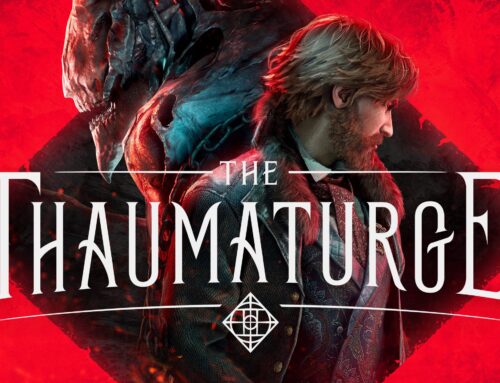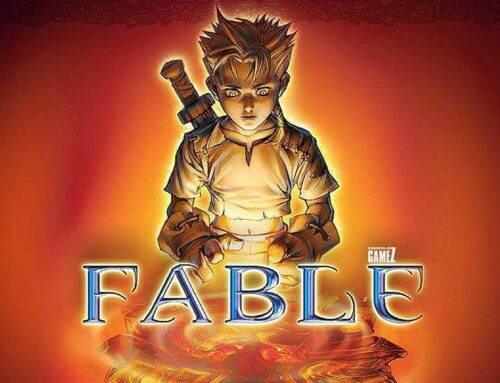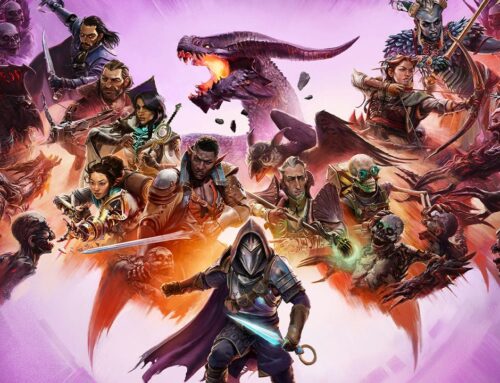Imagine this: gods are real and live among us in disguise to fit in. Some of them are old – the gods you already know, such as Odin, Czernobog and the Leprechaun – and others are new – gods of technology, media and globalization. Now imagine that the only way for these gods to survive is by being continually worshiped by us, mortals. As the Old Gods find themselves worshipped less and less, they decide to wage a war against the New Gods, to prevent their own extinction. And they do it in the United States of America. This is the central premise of Neil Gaiman’s now classic fantasy novel American Gods.
If you haven’t read it already, I’d like to convince you to do so immediately, because – spoiler alert! – it’s good. Really good.
Before I get into the specifics, however, note that there are two versions of this novel – the original one, published in 2001, and the updated one, referred to as The Tenth Anniversary Edition. The latter was published in 2011 with some additional content (about 12,000 words) and is the author’s preferred text. That’s the version I’ll be discussing here.
The Story
American Gods follows an ex-convict named Shadow Moon, who finds himself working for Mr. Wednesday, a con artist and an old god (I won’t spoil which one). He hires Shadow to be his driver and muscle while he recruits various Old Gods throughout the US for the upcoming confrontation against the New Gods.
And that’s really what this tale is – an account of Shadow’s journey across the US. At first, he’s accompanied by Mr. Wednesday, then twists happen, and he finds himself alone. Despite this, the nature of the novel doesn’t change. It remains a journey. A travelogue. Shadow visits a location, meets new characters, then moves on. Rinse and repeat.
Many of these locations are bizarre yet real places that I’d wager many people (including Americans) are unfamiliar with, such as the House on the Rock – a complex consisting of rooms, streets and shops, filled with strange objects and memorabilia. It’s a place that exists solely for its own sake. Solely for attracting visitors and taking their money. Gaiman is very keen on pointing this out, as it exemplifies a uniquely American trait – the capacity to turn anything into a money-making spectacle.
The characters Shadow encounters are even more bizarre, as most of them are, in fact, gods, with weird powers and even weirder personalities. One such god, or goddess, is Bilquis, who early in the novel literally consumes a man with her vagina, which he appears to enjoy, sexually, right up until his death. And there are dozens more crazy scenes like this one. Some are even crazier.
Not all characters are gods, however, and not all locations are as real as the House on the Rock, as Shadow does visit several made-up places (none of which are in America, mind you). Gaiman also throws in a few dream sequences, which feature the strangest locales and creatures by far (like a enormous mountain of skulls circled by giant birds). This back-and-forth between the real and the surreal gives the novel a kind of dreamlike quality, making you question whether any of it is real in the first place.
While the story is admittedly more about the journey than the destination, the destination is definitely worth it. The climax and the consequent epilogue resolve all the major plot threads, unexpectedly in places, while involving most of the characters Shadow meets along the way. And as you learn more about Shadow himself, you soon begin to understand why so much time is spent on his journey rather than on resolving the supposedly main conflict.
The best way to look at American Gods is as Alice in Wonderland for grown-ups – because like Lewis Carroll’s classic, it’s one heck of a trip. Incidentally, Gaiman has compared his earlier creation, Neverwhere, to Alice as well, so I’m not talking out of my ass here. You can find his exact quote in this edition of Neverwhere.
The Protagonist: Shadow Moon
Shadow himself, at a glance, seems like a normal fellow. However, as the story progresses, we realize that there’s something off about him. It’s hard to pinpoint what it is exactly, but it becomes apparent as you keep reading.
Shadow’s most peculiar characteristic is that he reacts to big, unexpected events in a delayed, almost absent-minded manner. For example, very early on – it’s a bit of a spoiler – his wife, Laura, dies tragically, and he hardly reacts to it. As soon as he learns of her death, the scene ends, and we jump ahead. Shadow then contemplates her passing, but it doesn’t seem to affect him at all emotionally. There are no tears, no grief, nothing. He just moves on, like some kind of psychopath. Until, eventually, he can’t move on anymore, and grief does strike him. It just happens a great deal of time after the fact.
The same applies to his reaction to the bizarre happenings around him. As a reader, you quickly pick up that things aren’t what they seem. They’re weird. Inexplicable. A normal person would’ve started questioning themselves and their surroundings almost immediately. But not Shadow. He simply accepts them and moves on. They don’t affect him. Until they do.
All of this contributes to the hallucinogenic feel of the novel. In dreams, we rarely question our reality, even when that reality doesn’t make sense. We only question it when we wake up, or are close to waking up. The same applies to Shadow. He’s almost half-asleep. He transitions from one bizarre happening to another without too much thinking. Until he does think about it and begins to vaguely understand what’s happening to him.
Some have called Shadow a “boring” protagonist because of this, but I disagree. There’s plenty interesting about Shadow. In fact, we learn quite a bit about him by the end of the novel. This indifference toward his surroundings may come off as lack of characterization, but in truth, that is his characterization. He’s just kind of “out of it.” Not entirely alive. There’s a scene that later addresses this very trait. Also, his name is Shadow. That’s not a coincidence. That’s a hint.
The Writing
The biggest strength of the novel is Gaiman’s writing, particularly how well he can bring characters to life. He does this not just through dialogue, but through physical actions as well. This gives you get a good sense of how these people move, talk and behave. More importantly, they’re all unique. When Mr. Wednesday is speaking, you know immediately it’s Mr. Wednesday, as opposed to Shadow, for example. In many cases, dialogue tags truly are optional. Except they aren’t, since that’s where Gaiman puts in a lot of his characters’ mannerisms and facial expressions. You can tell that characters were his primary focus.
But that’s not all. His descriptions while not especially lengthy do conjure up vivid images. He achieves this through the use of metaphors and similes. Here’s how he describes Shadow’s arrival in Chicago:
Chicago happened slowly, like a migraine. First they were driving through countryside, then, imperceptibly, the occasional town became a low suburban sprawl, and the sprawl became the city.
It’s simple yet effective. Here’s his description of an airport (or airports, if you like):
All airports, [Shadow] had long ago decided, look very much the same. It doesn’t actually matter where you are, you are in an airport: tiles and walkways and restrooms, gates and newsstands and fluorescent lights. This airport looked like an airport. The trouble is, this wasn’t the airport he was going to. This was a big airport, with way too many people, and way too many gates.
Again, not many words are used here, but the image is very clear.
Finally, Gaiman’s writing can be funny too. Though I wouldn’t describe American Gods as a comedy – in fact, it’s more tragic than humorous – I laughed out loud more than once while reading it. Yes, the atmosphere is dark and downright oppressive. Yes, the stakes are borderline apocalyptic. And yes, Shadow is as straight-faced as a protagonist can get. Yet Gaiman never has any qualms about inserting tongue-in-cheek remarks (or similes) into serious scenes or dry descriptions, both to surprise and knowingly reassert the absurdity of it all. He doesn’t do it often, which is why the humor works, I think. Here’s an example:
“I think there are several aspects of our marriage we’re going to have to work on.”
“Babes,” he told her. “You’re dead.”
“That’s one of those aspects, obviously.”
American Gods is a delight to read. It’s not overly descriptive yet it’s descriptive enough. The pacing of the writing itself is almost always on point. And there’s almost never a moment where you’re not clear about something. I don’t know how long exactly it took Gaiman to polish this book, but I’m sure it took a while.
Common Complaints (Debunked)
While this book is phenomenal, it’s not necessarily perfect (nothing is!). But before I provide my own complaints, I do want to look at some of the most common criticisms from others.
1. It’s plotless and boring
The biggest complaint I’ve seen people make about American Gods is that it starts out strongly, but sags in the middle. This is only the case, if you go into the novel with wrong expectations. It’s clear from the beginning that it wants to take its time. For instance, we spend the entirety of the first chapter in prison with Shadow, before his eventual release. We meet his fellow inmates and we get a sense of what Shadow’s life must’ve been like all this time. Then we move to another setting and spend a good while there. And that’s really how the book flows. If you go into it knowing that it’s about moving from place to place and meeting new characters, you’ll appreciate all the details Gaiman has put into them and become absorbed by them.
As long as you meet the book at its level and understand what it’s trying to achieve, you’ll have a good time. In addition, all these disparate pieces do tie together by the end. So, there’s that.
2. Shadow is outshined by other characters
This is true – by design, I think. The novel isn’t really about Shadow. It’s about the world he gets to journey through. If Shadow was an eccentric like many of the other characters he meets, this story wouldn’t work. Like Alice in Alice in Wonderland, he’s more of an observer than an active participant. And we’re observers with him.
Those are all the big complaints I can think of. There are others, of course, like the notion that Gaiman tries too hard to be clever, but I disagree with that. And if you genuinely think that the passages I’ve provided above are not clever, then I’m sorry. Your life must be awful.
My Own Complaint
I only have one real complaint myself. On occasion, the novel leaves Shadow’s point of view and gives us glimpses of what the Old Gods are up to when he is not around (or have been up to before the novel even starts). Most of these interludes are phenomenally written and serve as a nice change of pace. My problem is that several gods get what seem like killer introductions, such as the aforementioned Bilquis, only to be casually dismissed later on. Bilquis, for instance, gets just one additional interlude before her “arc” is concluded, while many others don’t even get a follow-up sentence.
Admittedly, Starz’s TV adaptation does devote more time to Bilquis and her dismissed peers, so it appears that Gaiman was aware of the issue and tried to address it there. Still, it doesn’t change how underwhelming these characters are in the novel.
In Conclusion… Follow Shadow into the Wonderland
I love this book, and if you allow it to envelope you, you’ll love it too. I haven’t talked much about the themes, and that’s because it’s difficult to do so without spoilers. That said, the most important theme for me is America’s conflicted duality – what you see in movies and TV shows versus what you get when you actually go there. There’s more to America than meets the eye, and American Gods captures that “more,” that which makes this country unique, perfectly, I think.
So, if any of my ramblings piqued your interest, then do pick up this book. It’s definitely worth your time, whether you end up liking it or not. Because, at the very least, it may generate a few interesting conversations.




